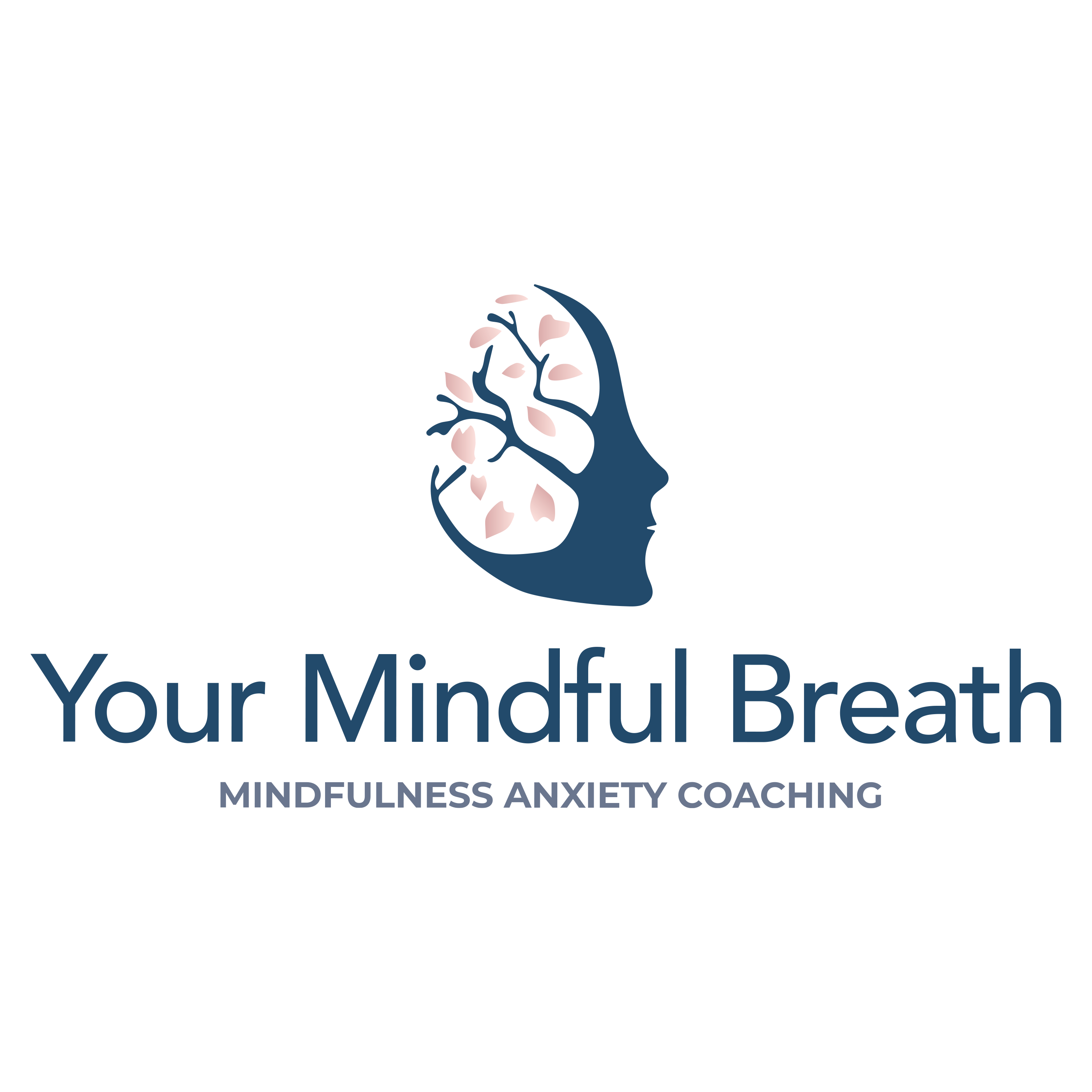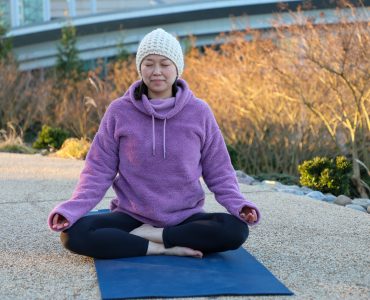Meditation has been used for thousands of years to calm the nerves and sharpen the mind. The more popular it becomes, the more people recognize its many health benefits.
Experts encourage us to meditate each day to boost our awareness of ourselves and our surroundings. They also recommend it to reduce stress, increase concentration, and develop healthy sleep patterns.
The best thing is you can do it practically anywhere at any time. There are so many forms of meditation that it’s easily customizable to fit your lifestyle.
Today, we’ll talk about the five most popular health benefits of meditation to ease anxiety and a few different types of guided meditations you can try out!
This is one of my top guided meditations for anxiety. This is one of the fan favorites when it comes to meditation and anxiety because it also invites in a little gentle movement before the guided meditation.
You can check out this free meditation here or just bookmark the page for later! 😊
Let’s dive in.
Lower Stress Levels
When we’re constantly in the grind of everyday life, stress levels quickly rise to dangerous levels. As a result, blood pressure levels rise, and our hearts work twice as hard to keep up with the high demand.
High blood pressure is also the leading cause of atherosclerosis. It’s a condition where the arteries become narrow due to the build-up of plaques, which can lead to strokes and heart attacks.
To help prevent all that, your doctor may advise you to take up meditation. Research has shown meditation reduces strain on the whole cardiovascular system, which lowers blood pressure and reduces the risk of heart diseases.
Here’s a simple practice you can try to dip your toe into the practice!
Box Breathing Guided Meditation
Promote Healthy Sleep Patterns
Close to 50% of the world’s population suffers from insomnia. Anxiety, stress, worry, nervousness—all make it challenging to get the quality sleep our bodies need to stay healthy.
Luckily, meditation can help ease anxiety and, indirectly, help reduce insomnia.
The way it does that is by helping you channel your thoughts. So, you become better at reigning in all those frantic ideas running through your mind, which may be a big reason you trouble sleeping at night.

By meditating several times a week, your body will start to relax and release all that pent-up tension. As a result, you’ll be able to sleep better and for longer.
You might even try a guided meditation to help prepare you for bed.
Try this Sleepy Soothing Train Ride Practice and see if it helps with sleep. I also posted on Instagram a a few ideas on how to mindfully get more sleep. You can check that post out here.
Encourage a Positive Self Image
We all have that one thing we don’t like about ourselves. Maybe we’re bad at telling jokes, or we’re afraid of public speaking.

The problem is when you start changing who you are to please those around you. By practicing mindful meditation, you learn how to sit with yourself. You learn how to be WITH your feelings and emotions rather than being consumed by them.
You become more understanding of who you are as an individual and how you relate to the people in your life. Your journey into self-awareness allows you to recognize your thought patterns. So, whenever you notice negative thoughts starting to form, you can redirect them towards a healthier, more constructive thought pattern.
You can check out one of my Instagram posts here on different types of thinking patterns.
Once you start redirecting these negative common thinking patterns, you’ll realize your thoughts don’t control you.
You’ll also see you don’t have to change who you are to be accepted, loved or feel worthy. You don’t need anyone’s approval to be who you are.
When you accept and love yourself, others will too.
With time and practice meditation may also ease social anxiety and reduce feelings of isolation.
You might try practicing Loving-Kindness Meditation to build more compassion for yourself and for others. Here is one of my most popular loving-kindness meditations.
Boost Attention Span
Most of the time, we forget what we’re supposed to be doing or forget why we’re doing it. Technology is a blessing, but it’s also a curse. Having the world at your fingertips doesn’t sound much fun when you’re having to answer a bajillion emails, texts, messages, and what-not.
 This constant bombardment of news and information damages our short-term memories. We don’t have time to focus on what we should, so our brains don’t give it a second thought.
This constant bombardment of news and information damages our short-term memories. We don’t have time to focus on what we should, so our brains don’t give it a second thought.
The good news is that research shows that meditation can help get rid of that foggy feeling in our brains. So, we concentrate better, focus more, and our cognitive functions improve drastically.
Even through brief meditation sessions, our brains can train to stay more alert. This increased attention span directly results from the discipline and resilience that comes hand-in-hand with regular meditation practice.
Here’s a meditation practice focused specifically on increasing and improving concentration. If your mind wanders during the practice, understand that this is part of the meditation practice.
Just like going to the gym and working on the muscles of the body, when you are in a meditation practice you are working out the brain. You’re strengthening the signals that you send to yourself and strengthening how long you can keep your attention in the present moment.
With time and practice of continuing to return again to the subject that you are concentrating on will become easier!
Here a couple meditations that may be helpful for you to improve concentration.
Calming Counting Breath & Mindful Body Awareness
Reduce The Risk Of Addiction
Meditation comes in many forms and techniques. Still, the one thing they have in common is they teach you self-discipline.
Thus, you become better at being mindful of the things that spur on addictive behavior. This can be anything from drugs and alcohol to gambling and binge-eating.
Studies show that regular meditation effectively redirects attention away from the negative influences and toward something beneficial, even healthy.
More importantly, when you meditate, you become more self-aware. Hence, the reason your addictive behavior may become easier to understand.
After that, the next step is to learn how to manage those triggers and know you’re strong enough to stand up to those unwanted habits until they no longer control you.
A Final Note
Meditation is something anyone can do to maintain a healthy emotional and mental state. You can do it right after you wake up in the morning or at your desk at work to release some of that mid-day anxiety.
Try out one, or several, of the meditation techniques available and see which one is better suited for you. It’s scientifically proven to improve all aspects of your life, even if you do it for just five minutes each day. We guarantee they’ll be five minutes well spent!
Please remember this blog post is not a substitute for your professional medical and mental health care. Please always talk to your primary medical doctor if you’re experiencing symptoms of anxiety that you are unable to cope with. Meditation is one of the many tools that I’ve used to help be with my anxiety in a more beneficial way.
If you’re interested in learning more about the techniques and tools, I’ve used to help my anxiety hop on over to the free private community – A Pathway to Peace for some live trainings and other resources!
And if you made it this far, share a comment down below of your favorite benefit or your reason why you want to start a meditation practice!





